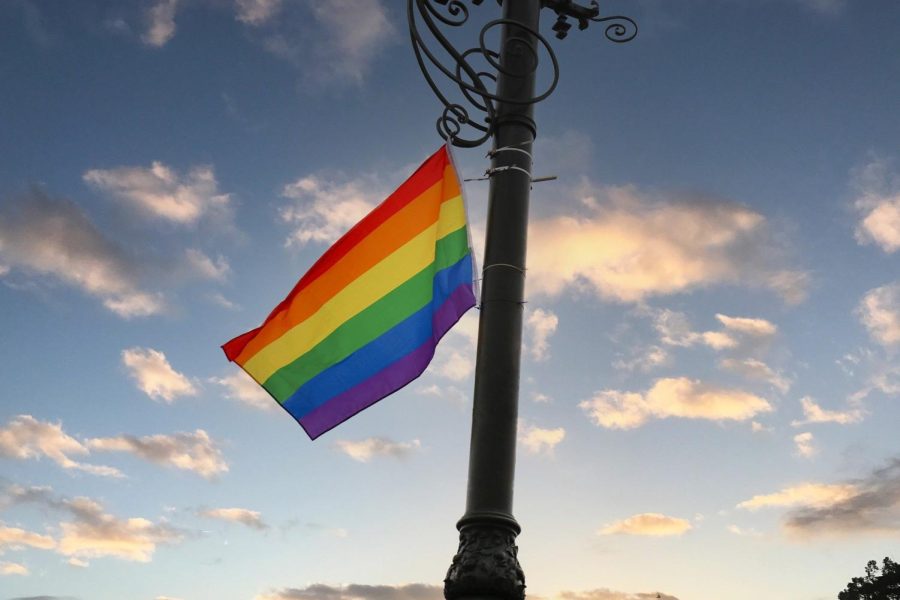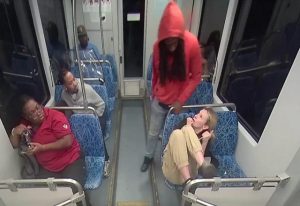“That’s so gay”: Why WHS Needs to Do Better
December 6, 2021
Content Warning: mentions of suicide and homophobia
Westborough High School prides itself in accepting all students.
At the bottom of each school sanction email reads: “The Westborough Public Schools do not discriminate on the basis of age, race, color, sex, religion, national origin, gender identity, sexual orientation, disability or any other class protected by law.”
Generally, this is a true statement–the Westborough school system as a whole does not discriminate against LGBTQ+ students, and that’s great! We’re a pretty safe community of people, as opposed to some towns nearby such as Franklin and Lawrence, which have seen a rise in hate crimes against LGBTQ+ youth as of late.
We have a GSA (Gender & Sexuality Alliance) club, and pride flags in many classrooms. No one is going to beat anyone up for their identity.
So why do I find myself sitting here, writing an anonymous opinion article? WHS is making a lot of moves to be more supportive of LGBTQ+ students, but are they doing enough? Are they going about this in the right way?
The truth is, we still have a long way to go. While queer students aren’t being physically hurt, we are constantly experiencing bias and subtle remarks about our identity. People who aren’t affected by this behavior may believe that WHS has done more than enough, but in reality, we’ve done the bare minimum. It shouldn’t be a privilege, or unusual, to feel safe at your own school.
Recently, I sent out an anonymous survey asking LGBTQ+ students at WHS about their experiences. The results confirmed my suspicions: queer students do generally feel safe here, but there are many steps we could take to improve how they are treated.
First of all, 40% of students who filled out the survey reported that they either do not feel safe being out at home, or are not sure they would be accepted.
One response I received really stood out to me. One student asked, “Will there be some sort of help for students that have transphobic parents?” When I asked what WHS could do to help, I received many suggestions that I believe could be really effective.
Educate guardians.
As a queer person, I’ve found that most of the ignorance myself and my friends face stems from a lack of knowledge. Hatred is taught- many guardians who are intolerant of their LGBTQ+ children were taught that being gay was a sin, or even a disease growing up. By providing helpful resources for these guardians, it is much more likely that they will finally understand why their behavior is wrong. Websites or articles with information on these topics could be added to a place where guardians can easily access them- maybe even the school website.
Ask students where to use their name and pronouns.
Many transgender or gender non-conforming students go by a different name, or different pronouns, then they might have been assigned at birth. I’ve noticed many teachers asking for pronouns this year, which is wonderful. However, there should be an option on these forms asking where it is acceptable to use the student’s preferred name and pronouns. This helps to prevent students from being outed to their families.
Keep information confidential. One of the most important areas in which WHS needs to improve is the confidentiality of information students share in private guidance counseling sessions. I have heard far too many stories from my friends about being outed to their parents by their guidance counselor. It is not acceptable to mention a student’s identity to their parents without explicit permission from the student.
Discriminatory Acts
In addition, 31% of surveyed students reported being called a homophobic slur by WHS students before, and 74% of students reported that they have heard “gay” used as an insult. This is entirely unacceptable, and goes to show that WHS needs to educate its students more on how to treat LGBTQ+ peers.
One of the best ways to stop ignorant and discriminatory acts is to get to the root of the problem. Most students who make these remarks have been brought up by homophobic or transphobic people. When I asked LGBTQ+ students for specific changes to the curriculum Westborough could make, I was overwhelmed with helpful responses.
Educating students on LGBTQ+ history could really help to open their eyes, and cause them to understand the impact of their words and actions. For example, Westborough could teach about the 1969 Stonewall Riots, which were a series of demonstrations that protested the unfair treatment of queer people by law enforcement. Important historical figures are critical to learn about as well. People such as Harvey Milk and Marsha P. Johnson were incredibly influential in the LGBTQ+ rights movement.
Respect others’ identities
Also, many people don’t seem to know that you don’t have to understand someone’s identity in order to respect it.
WHS senior and GSA leader Molly Northrup says, “I feel like teachers and adults in general think that you need to fully understand all of the complexities of a non-binary or trans person’s identity in order to respect them. This is really far from the truth! As someone who uses they/them, I don’t expect every person I’ve told about my identity to understand every single reason why I identify that way. The one thing I ask is that they make an effort to use my pronouns and correct themselves when they mess up. That’s the one and only thing they need to do to make me feel accepted.”
It’s been amazing watching the students and faculty here at WHS grow and learn, and I’m very proud of how far we’ve come. We’ve still got a long way to go in order to be a fully inclusive community, and there are many steps we could take to make that a reality. In the meantime, it’s essential that we continue to be accepting of each other. Ask for and respect pronouns and names, be kind, and try your best to make your LGBTQ+ peers feel welcome.
A 2020 survey by The Trevor Project showed that 40% of LGBTQ+ youth reported that they seriously considered suicide at some point in their life. This is most likely due to how they are treated by others. Unsupportive family, friends, and even homophobic strangers can contribute to feelings of isolation, fear, and loneliness. If you are ever considering suicide, I strongly encourage you to reach out to someone. The Trevor Project has both text and call hotlines- text “START” to 678-678, or call 1-866-488-7386.
If you’re looking for a community of LGBTQ+ people to socialize and take action with, I’d highly recommend the GSA (Gender Sexuality Alliance) club at our school. We meet Wednesdays after school in Mr. Perryman’s room (B210). Our google classroom code is “bfcahdi”.
To any LGBTQ+ students reading this article, whether you are ‘out’ or not, you are valid. No matter your identity, you are a person and should be treated as such. Anyone who tells you differently is simply ignorant, and incorrect. I’m sure you’ve heard this before, but it truly does get better. You’ll find a support system, and I promise there are people out there who accept you. There will be rough patches, times you feel lost, and you might feel like you are alone. But you are not alone at all. There are millions of other LGBTQ+ people out there who have felt what you’re feeling. There is always a reason to stay.
Helpful resources:








Evan Fallon • Dec 7, 2021 at 7:22 am
I thought this article did a great job of addressing issues regarding the LGTBQ+ community in our school.